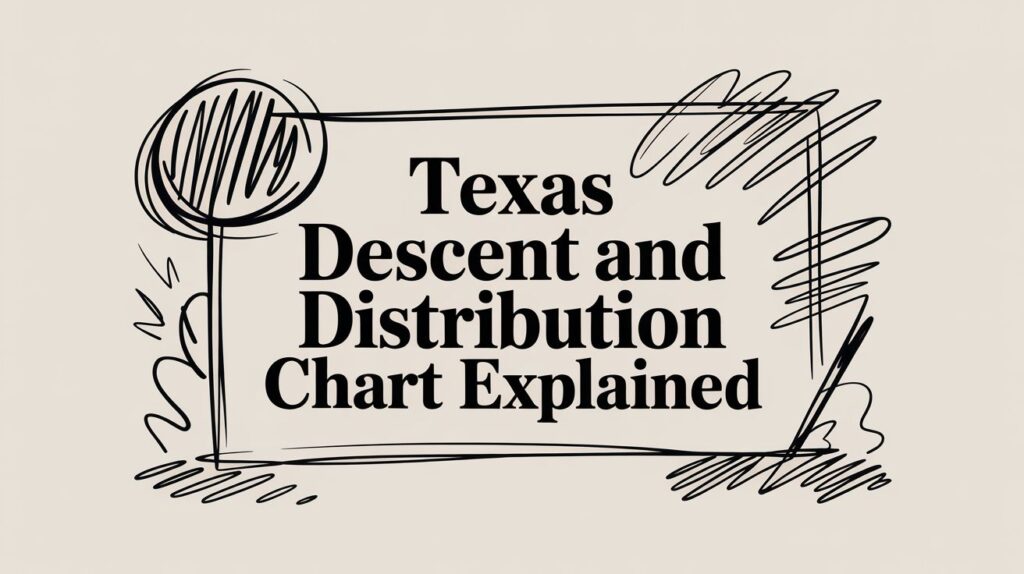Managing real estate during the probate process in Texas can be complex, especially when agricultural tax exemptions are involved. These exemptions provide significant tax benefits to property owners who use their land for qualifying agricultural purposes. However, navigating the probate process while maintaining these exemptions requires a comprehensive understanding of both probate law and Texas property tax regulations. This guide explores the intricacies of managing such properties, ensuring compliance, and optimizing financial outcomes.
Understanding Probate in Texas
What is Probate?
Probate is the legal process through which a deceased person’s estate is managed and distributed. This process involves several key steps, including the validation of the will, appointment of an executor or administrator, inventory and appraisal of assets, payment of debts and taxes, and ultimately, the distribution of assets to beneficiaries.
In Texas, the probate process can be relatively straightforward due to the state’s probate-friendly laws. However, complexities arise when the estate includes special assets such as real estate with agricultural tax exemptions. These exemptions, while beneficial, come with specific legal requirements that must be adhered to throughout the probate process.
Key Steps in the Probate Process

- Filing the Will: The executor or personal representative of the estate must file the will with the appropriate Texas probate court. If there is no will, the court will appoint an administrator.
- Appointment of Executor/Administrator: The court officially appoints an executor (named in the will) or an administrator (if no will exists) to oversee the probate process.
- Inventory and Appraisal: All assets of the estate, including real estate, must be inventoried and appraised to establish their value. This step is critical in determining the total value of the estate for tax and distribution purposes.
- Notification of Creditors: The executor must notify creditors of the estate, allowing them to submit claims for any debts owed by the deceased.
- Debt Settlement and Tax Payment:The estate’s debts, including any outstanding taxes, are paid. This may involve selling assets to cover liabilities.
- Distribution of Assets: Once debts and taxes are settled, the remaining assets are distributed to the beneficiaries as specified in the will or, in the absence of a will, according to Texas intestacy laws.
Agricultural Tax Exemptions in Texas
Overview of Agricultural Tax Exemptions
Agricultural tax exemptions in Texas are designed to support landowners who use their property primarily for agricultural purposes. These exemptions significantly reduce property taxes by assessing the land based on its productive value rather than its market value. The most common agricultural tax exemptions include:
- Open-Space Agricultural Valuation (1-d-1): This exemption applies to land used for farming, ranching, or other qualifying agricultural activities. It allows property taxes to be based on the land’s agricultural value rather than its market value.
- Timberland Exemption: This exemption is specific to land used for timber production and provides similar tax benefits as the open-space valuation.
- Wildlife Management Use: Landowners who engage in wildlife management activities can maintain their agricultural exemption under this category, provided the activities meet specific criteria.
Eligibility Criteria
To qualify for these exemptions, landowners must meet stringent eligibility requirements, including:
- Historical Use: The land must have been used for agricultural purposes for at least five of the past seven years.
- Primary Use: The primary use of the land must be for agricultural or wildlife management purposes.
- Documentation and Compliance: Landowners must submit detailed documentation to the local appraisal district, demonstrating the land’s qualifying use. This may include records of agricultural activities, income, expenses, and any required annual applications.

Managing Real Estate with Agricultural Exemptions During Probate
Initial Considerations
When real estate with agricultural tax exemptions is part of an estate, the executor faces unique challenges. Retaining these exemptions is crucial, as losing them can result in significant financial losses for the estate. Executors must carefully evaluate the status of the exemption and the future plans for the property.
- Assess the Exemption Status: The first step is to verify the current status of the agricultural tax exemption. Executors should gather all necessary documentation, including past filings with the appraisal district, records of agricultural use, and any correspondence related to the exemption.
- Determine the Future Use of the Land: It’s essential to understand the intentions of the beneficiaries regarding the land. If they wish to continue its agricultural use, the exemption can be maintained. However, if they plan to change the land’s use, this could impact the exemption status.
Legal and Tax Implications
Maintaining the Exemption
To retain the agricultural tax exemption during probate, several key steps must be taken:
- Continued Agricultural Use: The land must continue to be used for qualifying agricultural purposes. This may require coordinating with tenants or beneficiaries who will manage the land.
- Timely Application Submission: Executors must ensure that all necessary applications or renewal forms are submitted to the local appraisal district on time. Missing deadlines can result in the loss of the exemption.
- Proper Documentation: Maintaining detailed records is critical. This includes documenting all agricultural activities, expenses, income generated from the land, and any improvements made.
Changing the Land Use
If the beneficiaries decide to change the land’s use, they must be prepared for potential tax consequences:
- Rollback Taxes: Changing the land’s use from agricultural to non-agricultural can trigger rollback taxes. These taxes are calculated based on the difference between the taxes paid under the agricultural valuation and the taxes that would have been owed without the exemption over the previous five years.
- Reassessment to Market Value: The property will be reassessed at its full market value, which can lead to a substantial increase in property taxes. Executors and beneficiaries must consider the financial implications of this reassessment.
Communication with Beneficiaries

Effective communication with beneficiaries is essential to ensure that they understand the implications of maintaining or changing the land’s use. Executors should provide clear, detailed information on:
- The benefits of retaining the agricultural tax exemption, including the potential for significant property tax savings.
- The financial impact and potential tax liabilities associated with losing the exemption, such as rollback taxes and increased property taxes.
- The steps required to maintain the exemption or the process for transitioning the land to a different use.
Working with Professionals
Hiring a Probate Attorney
Given the complexities involved in managing real estate with agricultural tax exemptions during probate, it is highly advisable to engage a probate attorney with expertise in both probate law and Texas property tax regulations. A knowledgeable attorney can:
- Guide the executor through the probate process, ensuring compliance with all legal requirements.
- Advise on strategies to maintain the agricultural exemption or manage the transition of the land’s use.
- Represent the estate in any disputes or legal issues that may arise.
Consulting with Tax Advisors
A tax advisor can provide critical assistance in understanding and managing the financial implications of the probate process. Their expertise can help:
- Develop tax planning strategies to minimize liabilities for the estate and beneficiaries.
- Navigate the complexities of rollback taxes and other tax-related issues.
- Ensure that all tax filings are accurate and submitted on time to avoid penalties.
Conclusion
Managing real estate with agricultural tax exemptions during Texas probate is a multifaceted process that requires careful planning, attention to detail, and collaboration with legal and tax professionals. By understanding the probate process, maintaining compliance with agricultural tax exemption requirements, and communicating effectively with beneficiaries, executors can protect the estate’s assets and ensure that the financial benefits of the exemptions are preserved. With the right approach, the challenges of probate can be navigated successfully, providing long-term advantages for the estate and its beneficiaries.








